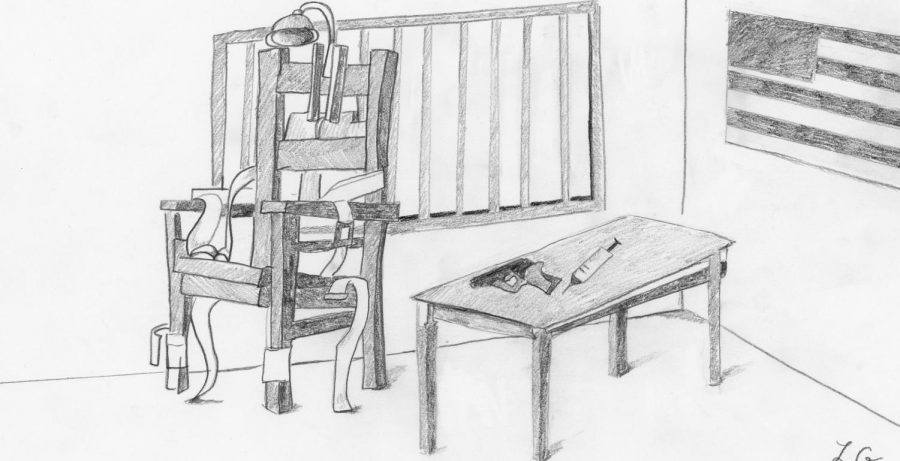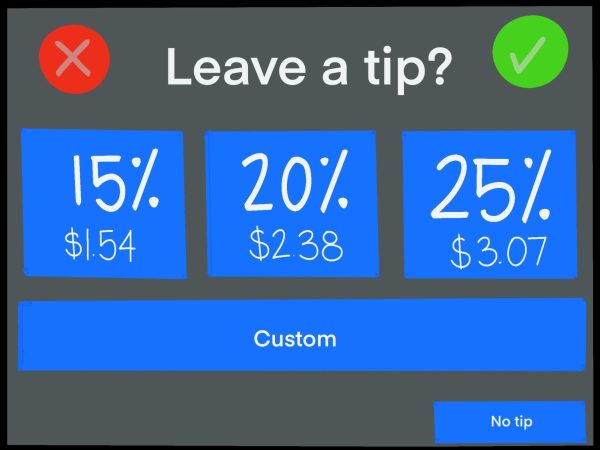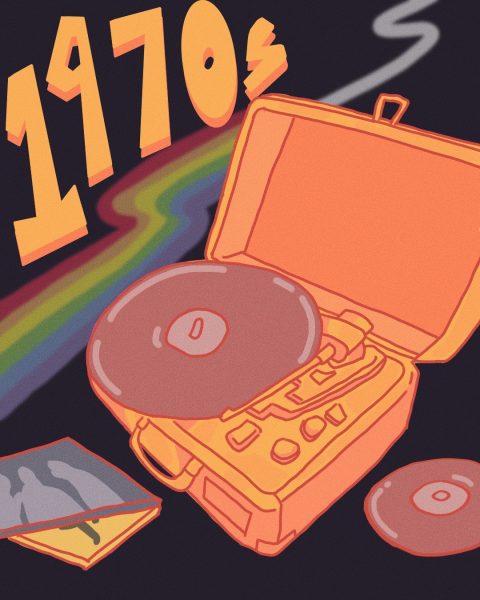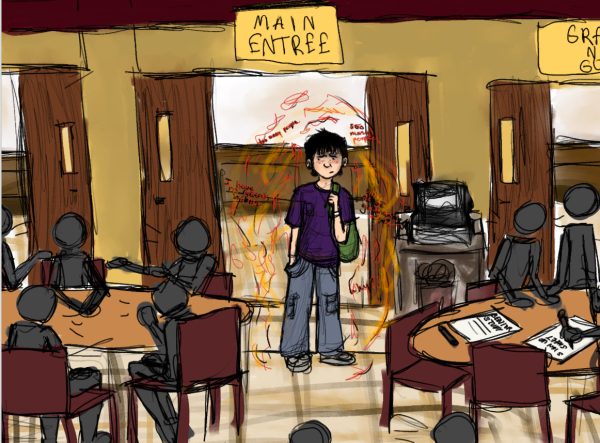Death penalty ineffective, inhumane, costly
Assistant A&E Editor Macey Poitras-Cote writes that the death penalty is ineffective in preventing crime and burdens taxpayers.
April 4, 2019
California has the highest amount of criminals on death row, but Governor Gavin Newsom paused sentences for all 737 of these criminals on Wednesday, March 12. Newsom said that the death penalty has been used as a tool of discrimination against race, mental illness, and hasn’t made California safer, but wastes taxpayers’ money.
The Massachusetts government does not use the death penalty to punish criminals, but federal crimes committed in Massachusetts have the potential of being punished with the death penalty. For example, after being found guilty of a federal crime, Dzhokhar Tsarnaev was sentenced with the death penalty because of his involvement in the 2015 Boston Bombing.
The death penalty should be abolished because it is ineffective in deterring crime, it is expensive and it is inhumane.
The death penalty does not prevent other criminals from commiting crimes. California, Texas and Florida have both the highest number of people sentenced to death and the highest number of murders committed in their states. This proves that the death penalty does not prevent murders from happening.
States that do not use the death penalty have less murders. According to statistic company Statista most of theses states’ murder rates fall under the 50th percentile of murders committed in their state.
The death penalty is extremely expensive for taxpayers. California taxpayers have spent $4 billion for people on death row since 1978. This means that every criminal cost approximately $308 million dollars. A major reason for this is because the cost of attorneys, experts, and juries has increasingly gone up.
According to radio program Marketplace it costs, at most, $60,000 per year to keep someone in prison. This is still a large amount of money, but since the average lifespan for people in prison for life is 22 years all together, one criminal in for life is only $1,320,000 as opposed to the $308 million that the death penalty costs.
The death penalty affects our government negatively as well. If someone is wrongfully accused, when found innocent they could get up to $100,000 for every year put on death row, if not executed, but only $50,000 when imprisoned. This causes more of a strain on the prison system.
It has also been proven that the death penalty has been used to target people of color. California’s population is only 6 percent black, yet more than one third of people on death row are black. According to The Death Penalty Information Center, the system is more lenient towards white criminals. If a black criminal commits a crime towards a white person, the likelihood of death row is much higher. The death penalty is bias towards white people, making it an unjust punishment which should be abolished.
Not all criminals should receive life in prison, but life in prison would allow for no crimes to be repeated and possibly enough time for criminals to feel actual remorse. It can be used as a tool to help prisoners to improve themselves. The death penalty does not allow for people to redeem themselves. With the money saved from not enforcing the death penalty can go to rehabilitation for the prisoners.
It is hypocritical that we kill killers. We are punishing people that have murdered others by putting them to death. As Gandhi famously said, “An eye for an eye will make the whole world blind.” The only thing the death penalty produces is more people mourning the loss of another life. Killing a murder does not bring back the people lost.
The United States government is based on providing life, liberty and the pursuit of happiness for everyone. Our judicial system needs to be a model of humanity, and having the death penalty contradicts our nation’s core principles.
Life in prison is more humane because any life is a life worth saving. This punishment instills that the criminal also must pay for his or her crime. Yes, life in prison does mean the criminals get to live, but that does not mean they are free citizens. They are not given the normal life that most people live. They are enclosed in a small cell and rarely get to venture beyond their bars. That is a sufficient punishment.
The U.S. government should not use the death penalty as punishment, for nothing good could come from killing another human being.






















